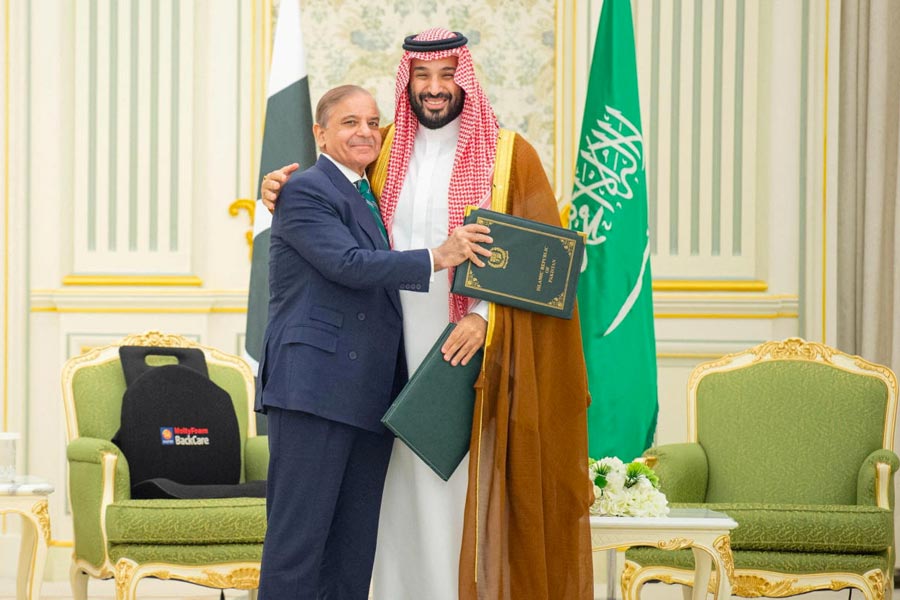The mutual defence treaty signed between Pakistan and Saudi Arabia last week represents a pivotal moment in the security architecture of both the Middle East and South Asia at a time when recent — in some cases ongoing — conflicts mean that both regions are on edge. Islamabad has historically had strong military partnerships with Riyadh and other Gulf capitals. But this agreement goes beyond joint exercises, training of Arab soldiers in Pakistan, and assistance to Saudi Arabia’s war in Yemen — the reality of ties until now. The new pact says that an attack on one of the signatories will be treated as an attack on the other too. Pakistan’s defence minister said that his country’s nuclear arsenal will also be at the disposal of Saudi Arabia, should it need those weapons. In theory, this agreement could put India in Riyadh’s crosshairs in the event of a future military conflict with Pakistan. That should be a major cause for concern for India, which has assiduously built close strategic ties with Saudi Arabia over the past quarter century: Prime Minister Narendra Modi has visited Riyadh thrice while in office and has described the Middle Eastern nation’s de facto leader, Crown Prince Mohammed bin Salman, as his brother.
Yet India must be careful about how it interprets the agreement. As the only nuclear-armed Muslim nation, and one with a massive army, Pakistan has long held the allure of offering military protection to Gulf nations that feel threatened by Israel. These monarchies have traditionally also believed that they enjoyed the cover of the United States of America’s security umbrella as they have hosted Washington’s many military facilities in the Middle East. That assumption was shattered earlier this month after Israel fired missiles at Qatar’s capital, Doha, less than 40 kilometres away from America’s largest base in the region. The deal with Pakistan is a signal to Israel and the US — it may not be a message to India. New Delhi and Islamabad both know the limitations of Pakistan’s mutual security pacts. Pakistan was a member of two US-led collective defence agreements during the Cold War — the Southeast Asia Treaty Organization and the so-called Baghdad Pact. However, the members of the two alliances did not join Pakistan during the wars in 1965 and 1971. The Saudi-Pakistan pact is a reminder of how Israel’s recklessness has forced Middle Eastern nations to turn to Pakistan. For India, that itself is bad news.











